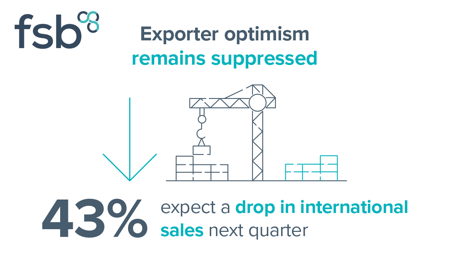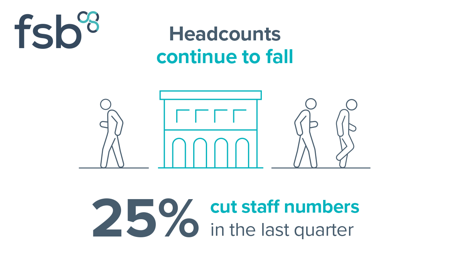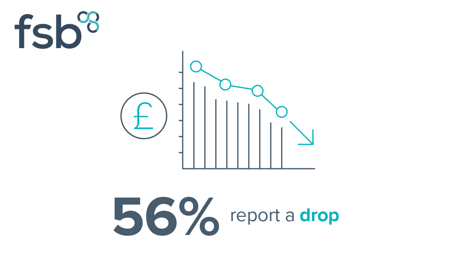Foreward
We have, regrettably, been reporting for some time on entrenched pessimism within the small business community. First it was five straight negative readings of the Small Business Index (SBI), then six, then seven and now, sadly, eight. Confidence among small firms has been in negative territory since the summer of 2018, when Prime Minister Theresa May was only two-thirds of the way through her time in office. Though minds are rightly focussed on the Covid pandemic, it’s important to remember that small firms were already up against political uncertainty and surging operating costs before it hit.
This quarter has provided some respite – if short-lived – for many of the hardest-hit firms. The vital Eat Out to Help Out sparked a flurry of summer activity across the retail, leisure and hospitality sectors. Consumers were again content to dine at restaurants, visit nonessential retailers and staycation – GDP has soared.
And yet, small firms were still rightly concerned about future bumps in the road. Only one in three expect performance to improve in the critical three months leading up to Christmas – the remainder expect the opposite. Despite the summer bounce, firms still report a record drop in revenues, while the number planning to let staff go is at an all-time high. Exporters – still without any significant clarity around what the future holds for trade with Europe – say international sales have plummeted.
Off the back of our recommendations, the support on offer to businesses continues to evolve. Extending the ability to furlough staff on generous terms until 2021 will provide many with reassurance as they plan for the unpredictable months ahead.
But there is still more work to do. The value of the cash grants now on offer to small firms pale in comparison to those provided throughout the first lockdown. Often, they don’t even cover the rent. Many have been thrown-out by the withdrawal of the job retention bonus – an injection of future funds that had been factored into medium-term planning.
Elsewhere, thousands are still struggling to access the bounce back loans they need to see them through what the PM has warned could be at least another six months of disruption – many banks have unhelpfully closed their doors to new customers. And, after all this time, still so little help for the thousands of company directors, new business owners, firms down supply chains in hard-hit industries, swathes of the night-time economy and home-based businesses that were almost entirely overlooked when the first round of rescue measures were drawn-up.
The UK Government should urgently address these cracks in the small business landscape whilst bringing down the costs of doing business that were stifling firms pre-pandemic, especially where employment is concerned. At the local level, we need to see authorities exercising ingenuity to ensure their discretionary schemes reach those in the small business and self-employed community who are most in need.
Such efforts, combined with pro-business trade deals with the EU and other key international markets, should help give our entrepreneurs hope. As we look to Q4, there are indeed new reasons to be hopeful. Talk of promising vaccine trials have spurred markets and more small firms by the day are adapting their operations to suit a new normal where ecommerce and contactless delivery – already an increasing part of business life over the past decade – are now evermore present.
That said, we’ve always stressed that delivery of the world-beating test-and-trace infrastructure we were promised months back will be crucial to our ability to rebound. That very much remains the case. Only by resolving business support shortcomings, striking pro-business trade deals and enhancing our Covidfighting efforts can we hope to end this extremely concerning run of negative SBI readings and return to optimism once again. Our economic recovery and future growth in a world permanently changed by this pandemic will hinge on the success of the small business community. Every policy decision from here on in should be carefully assessed for its potential to spur start-ups, encourage business investment and drive commercial innovation.
Key Statistics



Key Findings
- Following the partial recovery witnessed in Q2, small business confidence subsided once more in Q3. The FSB Small Business Index now stands at -32.6, the second-lowest reading on record.
- All of the UK’s countries and regions witnessed a fall in confidence between Q2 and Q3. All countries and regions also recorded a negative index reading in Q3. Wales was the least confident region of the UK, exhibiting a score of -71.6, while London recorded the highest score at -25.8.
- Unanimous negativity was witnessed across sectors, though there was some variation in scale. The least negative index readings were witnessed amongst businesses in professional, scientific & technical activities and information & communication, recording -1.5 and -1.8, respectively. Overwhelming negativity was observed amongst those in accommodation & food services and arts, entertainment & recreation, however, reflecting
- the extent to which these businesses have been affected by the re-imposition of restrictions to slow the spread of coronavirus, as well as faltering demand levels.
- The rate at which small businesses cut employment levels increased even further in Q3. 24.7% of small businesses reported a fall in the number of people they employ, up from the then record high of 22.8% witnessed in Q2. Looking ahead to Q4, 34.3% of businesses in accommodation & food services expect cuts to their workforce, the highest proportion of any sector.
- More than half (56.2%) of small business reported falling revenue levels during Q3. Small businesses are only slightly less pessimistic looking ahead to the next quarter, with 50.1% expecting another quarter of falling revenue.
- A greater percentage of firms (44.5%) expect to grow in the next 12 months than was the case in Q2 (38.8%). The domestic economy and consumer demand remain the most commonly cited barriers to growth, with concerns over the labour market also manifesting.
- The credit availability and affordability indices sat in positive territory simultaneously for the first time in their histories. This has been facilitated by government support programmes for small businesses, with the likes of the Bounce Back Loan Scheme providing facilities for approximately 1.3 million businesses.
- Looking ahead to Q4, more firms expect to increase investment than decrease investment. The proportion of firms expecting higher investment levels in the fourth quarter sat at 24.9%, while the corresponding figure for firms expecting cuts to investment was 24.2%. As such, for the first time this year the number of firms expecting increased
Download the full report
Click below to download the report for full analysis, statistics and sources.






